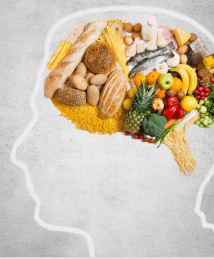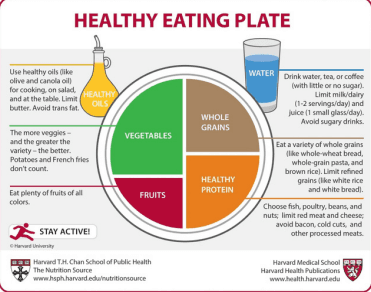How to make the best out of dietary habits as a medical student
April 4, 2023
Written By : LIYANAGE HIRUNI ALOKA DASANAYAKE ,CLASS OF 2025.
Staying up late studying, rushing to classes and lectures, all while participating in extracurricular activities results in most medical students fueling up on high amounts of coffee and one meal a day. Added to that unhealthy routine is fast food and unhealthy snacks which we think save us time but instead increase the risk of major chronic diseases.
There are several studies conducted to evaluate the eating habits of medical students. Proper nutrition is a significant aspect of medical practice.
However, most studies reveal disheartening facts and statistics of unhealthy dietary habits of medical students.
The goal is to stay energized throughout the day while adapting to healthy food choices which include all the essential nutrients required for our physical and mental wellbeing.
Here are some tips that you may incorporate into your lifestyle so that one day you may share your own experiences with future patients and give nutritional recommendations with great confidence rather than merely quoting from a textbook you have studied from.

Hydrate yourself adequately.
The standard amount of water that has to be drunk per day is 6-8 glasses. With our schedules we tend to forget to drink water. So, as a tip, take a water bottle to your classes, lectures and when you go to the hospital. This way you will have water to drink anytime since a reason for not drinking enough water might be the fact that you don’t have water with you to drink even if you need to. Another tip is to have a transparent water bottle on your study table when you are studying for long hours.
2. Don’t skip breakfast.
Have a healthy breakfast but not a heavy one. No one wants to be too full and doze off in class in the morning. In many scientific studies it is proven that a good breakfast increases the efficiency of a person. This will fuel the brain and your body to be active throughout your day. Possible options for a good breakfast are fruits, nuts, low-sugar yoghurt, cereal, oatmeal, or some light sandwiches.
3. Avoid fast food, or if you choose to, do so wisely.
Ordering fast food every week is not recommended but if you have no choice when the study load is piled up or simply because you are too exhausted to cook anything and your option is to order some pizza or fried chicken, you may do so but try to limit the high fat content and make some healthy choices. Do not make it a habit to eat fast food since it is without a doubt the highway to chronic diseases such as cardiovascular diseases, digestive issues and obesity.
4. Don’t follow quick fix diets.
Nowadays social media will promote different types of quick fix diet claiming to lose weight. But following such quick fixers will not only backfire, but also throw you off your studies.
Starvation and quick-fix diets are not the solution, but a balanced diet and exercise will help your weight loss if that’s what you are looking for.
5. Replace the candy bars with healthy snack options.
Fresh or dried fruits, rice cakes, whole wheat crackers and unbuttered popcorn are good replacements for the candy bars and chips that you eat on your study breaks or if hunger strikes during late night studies.
Even for the breaks in between classes, you can keep some healthy snacks in your bag just in case. This will help to keep you energized as well as reduce the sugar intake, bringing you more health benefits.
6. Take multivitamins.
This will positively affect your mood and energy levels as well as reduce stress and anxiety. Especially during the winter where there is almost no sunlight, taking Vitamin C and D supplements will strengthen your immune system. Vitamins improve your brain function which means this will be a boost for your studying.
Frequent poor eating habits of medical students were found to be irregular meals, skipping meals especially breakfast, low consumption of fruits and vegetables, high intake of sugar and fried foods and alcohol intake. Proper food consumption is the consumption of the right nutrients in the right amounts (correct quality and quantity). Therefore, by adhering to the above-mentioned tips and guidelines you can adapt to a healthy lifestyle, not to mention the avoidance of digestive problems that comes along with unhealthy meals.
In conclusion, the aim of the article is to promote healthy eating habits among medical students because after all this will help to set an example to our patients to effectively switch to healthier habits in the future and benefit our professional practice too.

